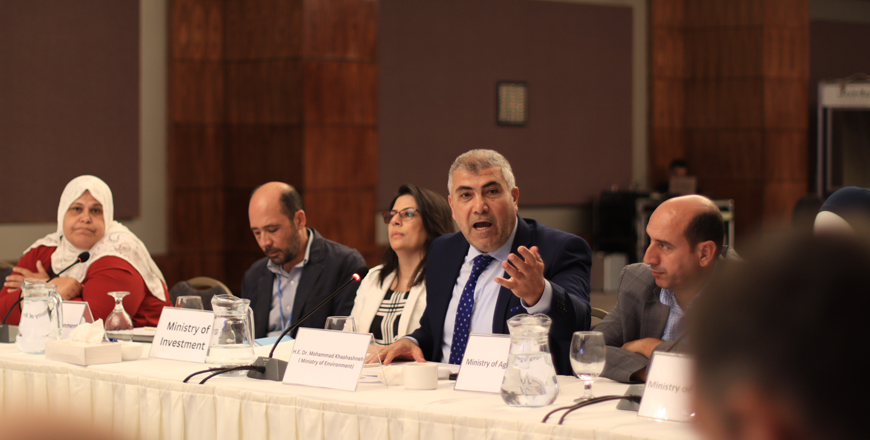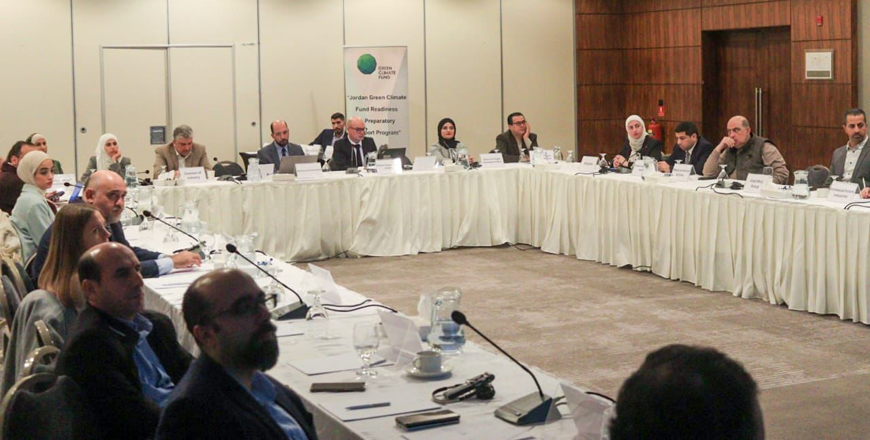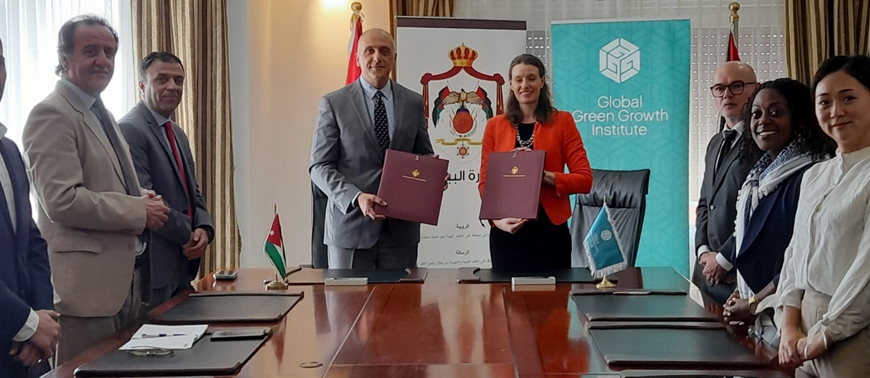You are here
Public-private sector partnership necessary for Jordan’s emissions reduction goal
By Mays Ibrahim Mustafa - Aug 30,2023 - Last updated at Aug 31,2023

Speakers during the Public-Private Dialogue on Climate Finance for 2023, held in Amman on Wednesday (Photo courtesy of GGGI)
AMMAN — The Kingdom’s target to reduce greenhouse gas emissions by 31 per cent by the year 2030 requires an estimated JD7.5 billion in investments, according to Secretary-General of the Ministry of Environment, Mohammed Khashashneh.
During the first Public-Private Dialogue on Climate Finance for 2023, Khashashneh noted that Jordan’s CO2 emissions equal 32 million tonnes, which accounts for 0.06 per cent of the global total.
The dialogue, which took place in Amman on Wednesday, is part of a series of sessions that will be held by the Ministry of Environment in cooperation with the Global Green Growth Institute (GGGI) throughout 2023 and 2024, according to Khashashneh.
The dialogue sessions are intended to foster increased cooperation with the private sector, and create an enabling environment for climate finance across various sectors in Jordan, he said.
Public-private partnerships (PPPs) play in an integral role in helping Jordan realise its commitments to climate change mitigation and adaptation, Khashashneh added.
These include plans outlined in the Nationally Determined Contributions (NDC), the National Green Growth Plan for Jordan (NGGP) and the National Climate Change Policy of the Hashemite Kingdom of Jordan 2022-2050, he said.
Over the last year and a half, the Ministry of Environment and GGGI successfully conducted six quarterly public-private dialogue sessions, according to Deputy Country Representative at GGGI, Krystle Cooper.
GGGI supports Jordan with green growth planning and implementation as well as climate finance readiness. It also facilitates investment in priority sectors, including e-moblity, according to Cooper.
During the dialogue session, Cooper discussed the intended outcomes and outputs of the third Green Climate Finance (GCF) Readiness Project, implemented by GGGI under the patronage of the Ministry of Environment.
The project, which runs from December 2022 to December 2024, aims to improve access to climate finance in Jordan in order to drive both environmental and economic benefits, she said.
Laila Tashamneh, Acting Director of the Public-Private Partnership (PPP) Unit at the Ministry of Investment, highlighted recent legal reforms that promote PPPs and encourage green investments in the private sector.
The new PPP law, which was passed in August 2023 and will come into force this November, establishes the Ministry of Investment as the primary reference in PPPs to make related procedures more efficient and organised, she said.
The Investment Environment Law No. 21 of 2022, which entered into force in 2023, offers incentives and subsidies for projects that incorporate renewable energy activities, Tashamneh added.
She also listed projects implemented under the PPP model, including the construction and development of 14 new schools, the Amman-Zarqa Bus Rapid Transit project, the Aqaba Amman Water Desalination and Conveyance Project (AAWDCP) and the Non-Revenue Water (NRW) reduction project.
Tenders issued for PPPs will integrate climate change adaptation and mitigation requirements, Tashamneh said.
Related Articles
AMMAN — The private sector is a key partner in fulfilling national goals related to climate change adaptation and mitigation, said Director
AMMAN — The Ministry of Environment on Tuesday signed a memorandum of understanding with the Global Green Growth Institute (GGGI) with the a
AMMAN — The Public-Private Dialogue on Sustainable Transport in the Tourism Sector, which took place on Tuesday, focused on better understan
















